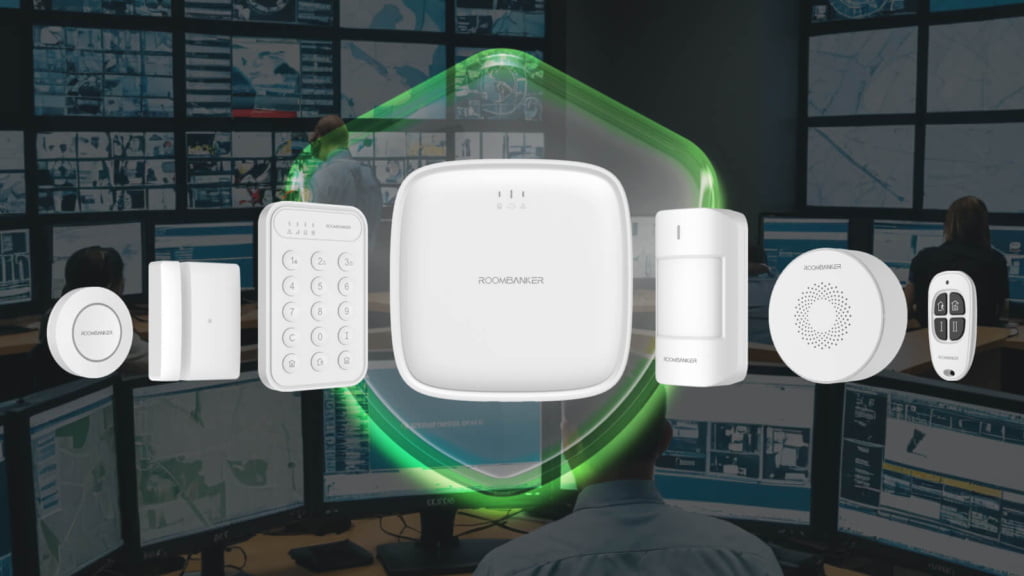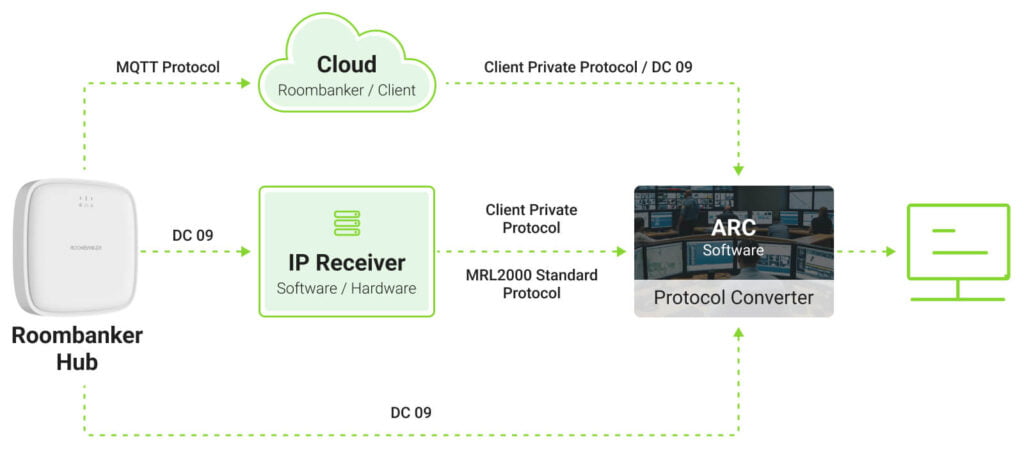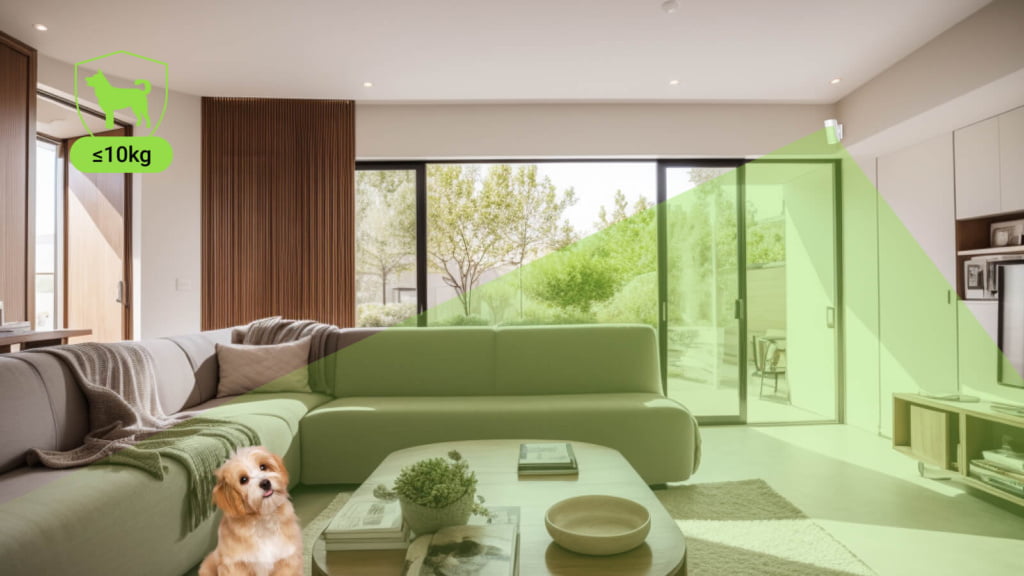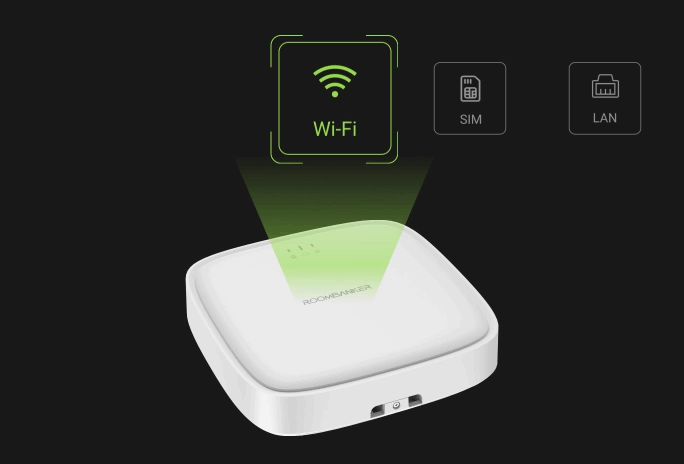When you search for the differences between DIY and professionally security systems, you’ll often find similar content. Most sources emphasize that professional system is more reliable but also more expensive, while DIY systems are more convenient and affordable. Indeed, DIY security systems are easily available online and in supermarkets, whereas professional security systems are typically found in dedicated stores. But why is this the case?
The key lies in the significant differences between professional and DIY security systems in terms of hardware, software, system architecture, functional logic design, and routes from manufacturers to the market. This article, from the perspective of an intrusion alarm manufacturer, will delve into the distinctions between DIY and professionally security systems.

DIY vs Professional Security Systems
DIY and professional security systems, while both aiming to protect your home, have significant differences that go beyond just the price tag. So, what exactly sets DIY and professional security apart? Let’s delve into the fundamental distinctions between DIY and professional security systems across four key dimensions:
Professional System Must Integrate with ARC/CMS, While This is Optional for DIY Systems
A key differentiator between professional and DIY security systems is the integration with an Alarm Receiving Center (ARC) or Central Monitoring Station (CMS). Professional systems mandate this connection, ensuring 24/7 surveillance of your property by trained professionals. In case of an alarm, trained operators can assess the situation, verify the threat, and dispatch emergency services promptly. Professional monitoring significantly reduces response times to security incidents, minimizing potential damage and loss. On the other hand, knowing that your property is constantly monitored by experts provides unparalleled peace of mind.
Some DIY systems offer optional ARC/SMC integration, and users have the flexibility to choose whether or not to opt for ARC/CMS monitoring based on their individual needs and budgets. But it’s important to consider the limitations. Self-monitoring often relies on homeowners to respond to alarms, which can be delayed or missed. Additionally, DIY systems may not offer the same level of security protocols and redundancy as professionally monitored systems. It’s also important to note that different DIY brands offer varying levels of ARC integration and support. Therefore, users should carefully compare options and select a system that aligns with their specific requirements.

Typically, professional alarm systems connect to an ARC/CMS in three ways:
1. Cloud-Based Transmission:
Think of this like sending a postcard through a friend. The home security hub sends data to security provider’s cloud server using a simple language (MQTT). The server then translates this message into the ARC’s language (DC 09 protocol) and delivers it.
2. Direct Transmission to IP Receiver and Protocol Conversion:
This is like calling a translator directly. The smart home hub speaks directly in DC 09 to a special device called an IP Receiver. This device is fluent in both DC 09 and the ARC’s preferred language (either their own or the standard MRL2000). It quickly translates and relays the message to the ARC.
3. Direct Protocol Conversion:
Imagine having a dedicated interpreter on speed dial. The home security hub sends a message in DC 09 directly to the ARC’s Protocol Converter. This device is a specialist in understanding your hub’s language and instantly translates it for the ARC to understand and act upon.
Professional Systems Have Higher Performance and Reliability Requirements, While DIY Systems Are More Flexible
Professional security systems impose stricter requirements on device performance and reliability to ensure optimal system operation and protection. This often requires:
- Advanced Detector and Sensor Technology: Professional systems employ higher-quality detectors and sensors with enhanced features like digital temperature compensation, anti-masking, and tamper detection.
- Robust Hardware: Components are designed to withstand challenging environmental conditions and provide long-term durability.
- Rigorous Testing: Devices undergo extensive testing to meet industry standards and ensure consistent performance.
In contrast, DIY systems have relatively lenient performance requirements, focusing primarily on meeting basic safety needs and might resulting in frequent false alarms.
For example, in professional security systems, PIR sensors must have pet immunity features to prevent false alarms, allowing them to recognize and ignore pets weighing up to 20kg or 30kg. Additionally, to ensure the security system remains unaffected by weather conditions or temperature variations, PIR sensors in professional systems typically employ advanced designs and technologies to reduce environmental impact and improve alarm accuracy.

Roombanker’s PIR motion sensors utilize anti-white light technology, automatic sensitivity adjustment, and independent floating threshold to effectively prevent false alarms caused by environmental changes.
Professional System’s Control Panel Features More Sophisticated Logic Design Compared to DIY Systems
In security alarm systems, control panel, although in different form factors, serves as the central control unit for the entire system, managing devices and processing data.
In professional security systems, such as Roombanker’s Home Security Hub, incorporate highly advanced alarm logic designs. While for DIY systems, it is often called as base stations, which offer basic functionalities like signal forwarding and simpler internet connection.
On the hardware side, professional control panels offer features such as network redundancy, battery backup, tamper resistance, and compatibility with multiple communication protocols. These elements ensure greater reliability and robustness.

On the software side, professional systems are designed with many advanced features such as independent delay settings for each sensors, fault notifications and bypass options, as well as complete installer and user management capabilities. These sophisticated controls provide a higher level of customization and security.
Professional Systems Tend to Prove Their Reliability via Industry Certification, While This is Not Mandatory for DIY Systems
Most professional security systems undergo rigorous testing and certification processes, such as EN50131, PD6662, and UL standards, to ensure they meet stringent international and national benchmarks for performance, safety, and reliability. For high-security environments like large financial institutions, insurance companies, airports, oil fields, and more critical infrastructure, having a high-reliability security system capable of resisting professional theft or intrusions is essential.
These certifications cover a broad spectrum of requirements, from equipment design to real-world application, ensuring that the system operates reliably in various environments and provides high levels of security protection. Achieving such certifications enhances market competitiveness and user confidence, ensures legal compliance, improves system interoperability, reduces risks, and facilitates international market entry. Consequently, these systems offer dependable protection for high-security environments.
On the other hand, certification is not mandatory for home security systems. The extensive time and financial investment required to meet such certification standards can significantly increase the end price for consumers. While this investment is necessary for some families, it might not be feasible or necessary for all.
DIY home security system kits typically only need to meet basic certifications like FCC and CE, which focus on fundamental functionality, market compliance, and basic safety requirements. This allows DIY systems to enter the market more swiftly and be more affordable, making them generally more suitable for home and small office applications.
Compare Professional vs DIY Security Systems
To help you better understand the differences between professional and DIY security systems, we made a comparison table for clearer insights.
| Comparison Items | Professional Security Systems | DIY Security Systems | |
| hardware | certification | Better comply with international standards such as EN50131 and PD6662; | Need to meet basic safety and quality standards, such as FCC and CE certifications; |
| security | Features physical protection designs to prevent professional tampering and vandalism; | Offers basic physical protection designs to prevent general tampering and vandalism; | |
| durability | Uses industrial-grade components to withstand harsh environments and long-term operation; | Uses consumer-grade components designed for household and small business security environments; | |
| communucation | Supports various communication protocols (e.g., RS485, TCP/IP,and some wireless communications); | Supports basic communication protocols for easy integration with other home automation devices; | |
| software | encryption | Built-in hardware encryption modules ensure data security; Utilizes advanced data encryption technologies to ensure the security of data during transmission and storage. | Generally uses basic encryption technologies, such as AES-128, meeting the needs of most households and small businesses. |
| user authentication | Provides multi-layer authentication and access control to prevent unauthorized access; | Provides simple and easy-to-use authentication and access control suitable for regular users. | |
| reliability | Designed with high redundancy and fault tolerance to ensure the system operates under various failure conditions; Real-time monitoring and automatic fault recovery mechanisms ensure continuous stable operation; Standardized multiple network communication forms prevent system functionality issues caused by network failures; | Designed with user-friendliness and everyday use environments in mind, offering good reliability; Real-time monitoring and automatic fault recovery mechanisms may be simpler but still meet basic needs; Different brands offer optional network backup solutions; | |
| functionality | Supports complex alarm logic and event management to meet high-security requirements; Integrates various subsystems such as video surveillance, intrusion detection and alarm, and fire alarms to provide a complete security solution; Offers detailed event logs and reporting functions for auditing and analysis; Connects to ARC/CMS centers, providing 24/7 real-time monitoring services; | Provides basic alarm and notification functions suitable for daily security needs of homes and small businesses; Some devices integrate video surveillance and smart home control functions, enhancing user convenience; Offers user-friendly event logs and reporting functions, helping users understand and manage system status; ARC/CMS is generally an optional feature, with users able to opt for a paid service or monthly upgrade for additional services; | |
| operation | contract | necessary | optional |
| monitoring fees | monthly or annual fixed fees | optional | |
| 24/7 monitoring | professional monitoring | self-monitoring | |
| price | overall higher cost | overall lower cost | |
| scalability | Does not support arbitrary changes during the contract period; | Can add or remove equipment flexibility based on actual needs; | |
| installation | Installed by trained professionals; | can be self-installed; | |
Considerations When Choosing DIY or Professional Installation Systems
When choosing between DIY and professional installation systems, there is no one-size-fits-all answer. It depends entirely on your needs and budget. However, we can provide some suggestions based on the following aspects:
Product Variety/Range
Choose a brand that offers a complete range of devices, such as PIR motion sensors, door and window magnetic sensors, key fob for security system, alarm keypads, panic buttons, etc., and consider system expandability. The system should support easy addition of new devices, preferably via wireless connection to avoid complex wiring.
Budget
This includes the cost of devices, monthly service fees, and installation fees. Different brands and features result in varying prices, so choose mid-to-high-end devices based on your budget to ensure quality without being overly expensive.
Some security systems require monthly fees for cloud storage and professional monitoring services, so be sure to understand these costs and include them in your budget. For installation, if professional installation services are needed, understand the installation costs. Some brands provide free installation guide videos for DIY installation.
Ease of Installation and Use
Choose a security system with a user-friendly interface and simple operation. Prefer systems with mobile home security system app support for real-time monitoring and control.
The system should support automated scene settings, such as automatically activating security mode when leaving home and deactivating it upon return.
Additionally, the system should send instant notifications and alerts, with features that are easy to set up, ensuring users can operate it without specialized knowledge.
Future-Proofing
Choose a system that supports automatic software updates to receive new features and security patches timely. Hardware should be modularly designed to allow users to easily replace and upgrade individual devices without affecting the existing system, ensuring long-term maintainability and ease of upgrades.
Customer Support and Warranty
Prefer brands that offer 24/7 customer support to receive timely help when needed. Additionally, understand the warranty period and terms for the devices to ensure timely repair or replacement in case of faults. These measures can significantly enhance the purchasing and usage experience.
Final Words – Roombanker is Recruiting Alarm System Distributors Worldwide
Overall, intelligent security alarm systems are indispensable in modern life. Whether professionally installed or DIY, both have their advantages and can effectively enhance the safety of homes and businesses.
As a trusted manufacturer of wireless intrusion alarm devices, Roombanker is committed to providing innovative and reliable professional wireless security alarm solutions. We are actively seeking alarm system distributors and partners worldwide to distribute our products. If you share our passion for security and are interested in exploring new business opportunities, we invite you to contact us. Together, we can build a stronger, more secure future.
FAQs on DIY vs Professional Home Security Systems
What is professional security system?
A professional security system is a complete security solutions that multiple players involved, from system and device design, distribution, installation, and professional monitoring. It is more than just alarms and sensors. Key features of professional security system include:
Uninterrupted Operation: Redundancy mechanisms to withstand against power or network disruptions.
Remote Control and Quick Alerts: Reliable cloud servers for remote access, quick user notifications, and seamless operation.
Anti-jamming Security: Proprietary protocols with FHSS technology, bi-directional communication, data encryption and more methods to thwart intruders.
Professional Monitoring: Connection to a 24/7 monitoring station for 24/7 surveillance by trained experts for rapid response.
Read our article about what is professional alarm system to know more details.
What is DIY home security system?
DIY security systems often exists in home and small business environments. DIY security systems can be bought, installed, and managed by users themselves, typically including easy-to-install devices and user-friendly applications. DIY systems offer greater flexibility and cost-effectiveness, suitable for personal home use, allowing users to choose and add devices according to their needs without requiring professional installation and services.
DIY Home Security vs Professional, which is more suitable for me?
Choosing between professional security systems and DIY security systems depends on your specific needs, budget, and technical proficiency. If you need highly reliable round-the-clock monitoring and support and are willing to pay the associated costs, professional systems might be more suitable. If you prefer self-control and flexible configuration and want to save costs, DIY systems could be the better choice.
Are DIY alarm systems worth it?
While some may view DIY systems as inferior to professional setups, today’s rapidly advancing wireless technology has significantly enhanced their reliability and security. Modern wireless technology allows for easy installation, reduces device costs, and offers portability, bringing numerous benefits to home security.
DIY security systems leverage robust wireless technology combined with traditional security equipment. They effectively protect home property and personal safety at a more affordable price point. This makes home security systems accessible to a wider audience, offering features like real-time monitoring, alarm notifications, and automation. Overall, DIY systems enhance both convenience and safety, making them a valuable option for many households.
What is the difference between self-monitoring and professional-monitoring home security system?
Self-monitoring home security systems allow homeowners to manage and monitor their security devices independently through an app or control panel. This approach eliminates the need for external assistance, giving users direct control over their system. While self-monitoring systems are generally more cost-effective and offer flexibility, they require users to be actively involved in monitoring their security.
In contrast, professional home security systems provide 24/7 monitoring by a dedicated security company. These systems not only monitor your property around the clock but also have the capability to respond to alarms and contact emergency services on your behalf. This offers a higher level of security assurance, as professional monitoring ensures that trained personnel are always available to handle potential threats. However, this added service typically comes with a monthly fee.
